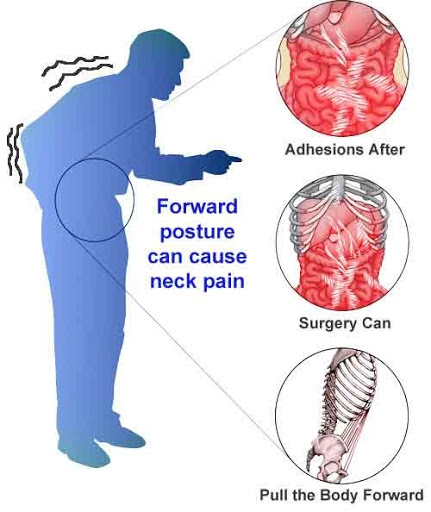Smart Ways to Prepare: How Long to Avoid Alcohol Before a Blood Test in 2025
Understanding Alcohol and Blood Tests
To ensure reliable results in a blood test, awareness of alcohol's influence on blood tests is crucial. Blood alcohol concentration can significantly skew test results, leading to potential misdiagnosis of various health conditions. The metabolites produced from alcohol consumption, alongside liver enzymes, can influence blood health implications and test interpretations. Health professionals emphasize the importance of following specific alcohol testing guidelines, which state that abstaining from alcohol enhances the accuracy of the test, ensuring that results accurately reflect your physiological state.
Moreover, the body's processing of alcohol can fluctuate based on several factors, including the amount consumed and individual metabolic variations. It's essential to recognize the need for abstinence prior to testing to avoid false positives and ensure that alcoholic influences do not interfere with diagnostic evaluations. This leads us to consider how long one should ideally avoid alcohol before such health assessments.
Alcohol Clearance Time and Fasting Requirements
The alcohol clearance time in the body can vary widely among individuals, but a general rule suggests abstaining from alcohol for at least 24 hours prior to a blood test. This abstinence period allows the body sufficient time to metabolize and detoxify the alcohol, leading to more accurate results. Depending on the type of blood test being administered—like a liver function test or assessing blood alcohol levels—the recommended abstinence may extend longer.
Fasting blood tests usually do not require a long alcohol-free period, but health assessments often mandate abstaining from alcohol altogether in the days leading up to the test. It’s prudent to seek medical advice regarding specific pre-test alcohol guidelines tailored to your health status and the type of blood chemistry tests anticipated.
Effects of Alcohol on Blood Test Reliability
Alcohol consumption can lead to significant alterations in various blood test results. For instance, liver function tests can show elevated liver enzymes due to recent drinking, which can mislead healthcare providers regarding the patient’s actual liver health. The health implications of alcohol consumption before testing can be severe, as it may mask underlying medical conditions or indicate incorrect diagnoses.
Understanding how alcohol affects blood tests can empower patients to take proactive measures in their health management. Healthcare providers encourage transparency regarding alcohol consumption limits, especially when scheduling blood tests, to avoid complications in testing and ensure the reliability of lab results.
Preparing for Your Blood Test: Recommendations
Preparation for medical tests often encompasses several lifestyle modifications, particularly concerning alcohol consumption. Acknowledging the various alcohol testing methods available can further inform your approach. Physicians typically recommend a period of alcohol abstinence tailored to the individual’s drinking norms and health conditions.
There are also practical strategies to consider for preparing for accurate results. For instance, staying hydrated with water, maintaining a balanced diet, and communicating any medications or supplements to your health provider can enhance both the accuracy and interpretation of your blood test results. Health professionals stress importance in adhering to established testing protocols to minimize risks and optimize blood test outcomes.
The Importance of Health Assessments Post Drinking
After alcohol consumption, health assessments become imperative, especially if you've recently indulged in drinking. Assessment protocols for drinking can include discussing recent alcohol intake with your healthcare provider and potentially reevaluating the timing of your blood test schedule accordingly.
Some may experience alcohol withdrawal symptoms that can mimic other health issues, complicating accurate assessments. Recognizing these potential effects is essential for patients to understand their health better and for providers to offer the most effective care. Following this consideration, it’s vital to comprehend the subsequent impact alcohol can have on blood analysis and the outcomes derived from those tests.
Understanding the Health Impact and Detoxification Period
Health Implications of Alcohol Consumption
The relevance of alcohol consumption regarding health screenings cannot be overstated. Engaging in responsible and informed drinking practices significantly contributes to maintaining good health and accurate medical testing. Alcohol-related health issues can arise, particularly with chronic consumption, and may lead to systemic problems detectable during blood testing.
For those who frequently consume alcohol, acknowledging the implications for health screening and preventive healthcare becomes critical. This awareness helps patients and health professionals alike to foster dialogues about safe drinking practices, testing accuracy, and the necessary precautions when interpreting blood results. Ensuring that all health assessments utilize the most accurate and reliable data is paramount for achieving optimal health outcomes.
Detoxification Process for Alcohol and Testing Recommendations
Detoxifying from alcohol prior to a blood test is a keen strategy that many consider essential. The detox process can vary in duration based on individual metabolism, prior consumption habits, and overall health. The body may require several days to weeks for a thorough detoxification, influencing factors such as liver function and overall well-being significantly.
When preparing for health evaluations, healthcare providers recommend an alcohol-free period of at least 72 hours, especially for tests assessing liver function, kidney health, and other systems affected by alcohol. Adhere to physician guidance regarding alcohol detoxing recommendations to make informed decisions about your health journeys.
Liver Function Tests: Alcohol and Body Chemistry
Liver function tests evaluate the health of your liver, measuring the presence of enzymes and other substances in your blood. Alcohol consumption directly impacts liver enzymes, which can lead to skewed test results and inaccurate health insights. Understanding alcohol's effect on liver function is essential for anyone facing blood tests related to liver health.
Factors influencing liver function testing accuracy include recent drinking habits, liver detoxification stages, and chronic alcohol effects. Discernment on when to hold off on alcohol prior to testing is crucial, and discussing these elements with healthcare professionals can guide you toward optimal health management practices.
Alcohol and Diagnostic Test Accuracy
The accuracy of diagnostic tests can be seriously compromised by alcohol consumption. Misleading test results may lead to unnecessary interventions or obscure genuine health issues. It's paramount to engage with healthcare professionals about the urgency of avoiding alcohol before medical testing to ensure both reliability and valid outcomes.
Keeping track of blood sampling procedures can further facilitate effective health management, helping you maintain clarity on what to expect during scheduled appointments. This establishes a proactive approach to health screenings and outcomes.

Navigating Myths and Truths About Alcohol Testing
Common Myths About Alcohol and Blood Tests
There are several myths surrounding alcohol consumption prior to blood tests that can mislead individuals. Some believe that only heavy drinking influences test outcomes; however, even moderate drinking can impact results significantly. Engaging in substance abuse testing can provide clarity on these misunderstandings, reinforcing the importance of following pre-test recommendations.
Another common misconception is that alcohol can be effectively "washed out" of the system only hours after consumption. This isn't accurate, as the body may take longer to process and detoxify alcohol fully. Therefore, adhering to strict guidelines about alcohol avoidance remains critical for ensuring accurate test results and health assessments.
Preparing for Effective Health Evaluations
Preparing for blood tests entails more than just avoiding alcohol; it encompasses comprehensive lifestyle evaluations and health screenings. By understanding your alcohol consumption impact, you can make informed decisions about when and how to partake in drinking. This empowers you with necessary insights into the implications for health screening and ensures the highest accuracy during medical evaluations.
Health professionals often provide individualized recommendations based on each person's lifestyle, reinforcing the necessity to consider various factors influencing blood testing. Engaging in responsible alcohol consumption and health practices is the cornerstone of proficient medical testing and clear health assessments.
Importance of Accurate Test Results
Accurate test results can significantly influence treatment paths and preventive healthcare decisions. Ensuring alcohol doesn't skew these results enhances trust in the healthcare system and promotes effective treatment strategies. This creates a ripple effect, culminating in improved health outcomes and patient satisfaction.
Navigating the complexities involved in health testing involves being aware of alcohol influences, receiving proper guidance from health professionals, and making informed personal choices. Overcoming misconceptions and taking appropriate actions ensures an accurate relationship with your healthcare providers.
Implications for Ongoing Health Management
The influence of alcohol on blood tests not only sparks interest in accurate testing but lays the groundwork for self-empowerment in health management. Recognizing the importance of detoxifying from alcohol in your pre-test preparation will markedly enhance the reliability of your blood testing experiences.
Connecting these issues with broader health practices emphasizes responsibility for one's actions and promotes conversations about alcohol regulations with healthcare professionals. Understanding how to manage your health with intention reinforces the necessity of combining personal responsibility with proper medical advice, both essential for successful outcomes.

Q&A: Alcohol and Blood Testing
How long should I avoid alcohol before a blood test?
Health guidelines generally suggest a minimum of 24-72 hours of abstaining from alcohol—this timeframe can vary based on the specific test. Consulting with a healthcare provider for personalized advice is recommended.
What effects does alcohol have on blood test results?
Alcohol can lead to elevated liver enzymes, altered lipid profiles, and skewed glucose levels, impacting the interpretation of test outcomes.
Can I drink alcohol the day before fasting blood tests?
No, it’s advisable to avoid alcohol entirely before fasting blood tests, as it can interfere with results.
How does chronic alcohol consumption affect health tests?
Chronic alcohol use can lead to lasting changes in liver function, kidney health, and overall metabolic processes that may complicate test interpretations.
What are some expert recommendations regarding alcohol consumption and health screenings?
Experts advise transparency with healthcare providers about drinking habits, adhering strictly to pre-test recommendations, and engaging in responsible alcohol consumption to maintain optimal health.


